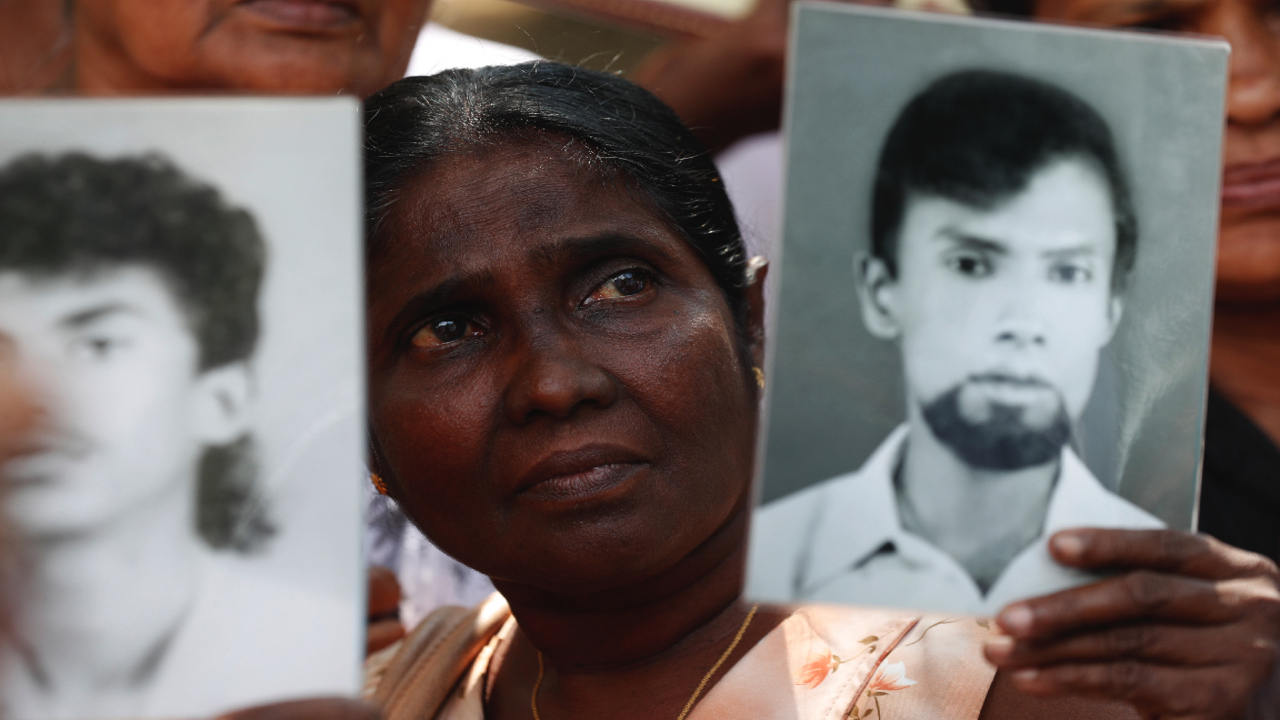On March 8, Sunday, relatives of disappeared persons in Sri Lanka carried out a protest rally in Mullaitivu in the Northern Province where a majority of the country’s Tamil population lives. Following the civil war in Sri Lanka, hundreds of Tamil families have been struggling for years to establish the fate of those who disappeared during the conflict and for “justice and reconciliation”.
Protesters holding placards marched from Selvapuram to the Mullaitivu district secretariat on Sunday with messages written in Tamil, English and Sinhala asking if their fight for justice would be forgotten. People in Mullaitivu observed a complete shutdown in solidarity with the families of the missing persons.
Many of those who disappeared had surrendered before the Sri Lankan army in 2009. Referencing this, one of the posters read: “If the answers to our children handed over to the military are death certificates, who are the killers?”
Almost 10,000 civilians, mostly ex-militants of the Liberation Tigers of Tamil Eelam (LTTE) went missing towards the end of the civil war.
Current Sri Lankan prime minister Gotabaya Rajapaksa was the country’s defense secretary when the government began its violent campaign against Tamil soldiers led by the LTTE. In January, for the first time, the authorities declared the 10,000 Tamils who had gone missing during the ethnic violence as “dead”.
Protesters on Sunday demanded that the prime minister take action against those military officials responsible for committing war crimes. According to one of the protesters: “When you were Foreign Defence Minister, we handed over our children to you. We don’t want you to delay this any further, we want a proper judicial inquiry”.
Relatives of disappeared persons had in January urged the United Nations Human Rights Council (UNHRC) during its 43rd session to launch an impartial inquiry into the matter.





